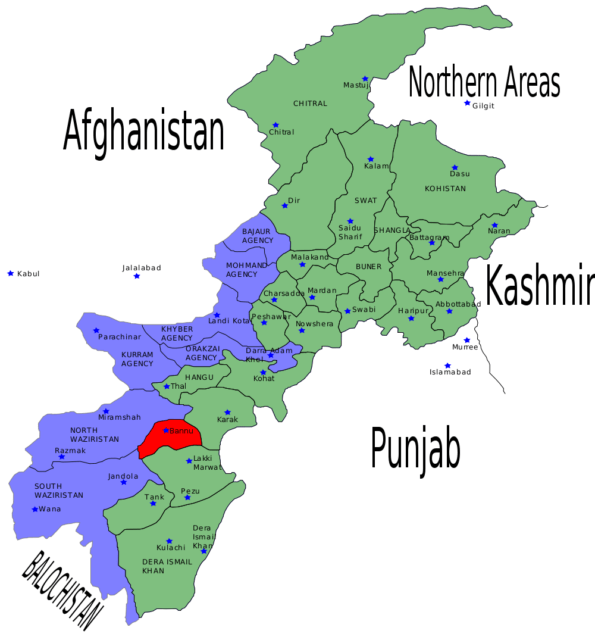Pakistan: militants seized a counterterrorism centre. Might Islamabad guarantee national security?

Author: Giuliano Bifolchi
Since Tehrik-e-Taliban Pakistan (TTP) ended the ceasefire with the Pakistani Government, security has worsened in the country. Recent violent attacks in Pakistan and militants’ seizure of the Counter-Terrorism Department (CTD) compound in the Bannu district have also alarmed neighbouring countries and foreign investors who are worried about future Pakistani stability.
On December 18th, 2022, detained militants inside the Counter-Terrorism Department (CTD) compound in the Bannu district in north-western Pakistan overwhelmed the security guards and took control of the building. The TTP spokesperson stated that the militant group claimed responsibility for the incident, reporting that its members had taken CTD staff and security officials as hostages.
He added that, initially, the militants asked for a ‘safe passage’ to Afghanistan. Later TTP discussed the possibility of ‘shifting the prisoners’ to either South or North Waziristan without receiving any feedback from Islamabad.
Special Assistant to the Khyber Pakhtunkhwa Chief Minister (SACM) Barrister Muhammad Ali Saif stated on his Twitter account that the Government would not fulfil any demand of the militants. He also confirmed that the militants killed a security official without adding any further details.
Why does it matter?
- Since TTP broke the peace deal with Islamabad, the country’s security situation has deteriorated. On December 10th, 2022, TTP announced the end of the month-long ceasefire, which the militant group reached with Islamabad on November 9th, 2022. TTP accused Pakistani authorities of breaking the promises made in the initial stages of peace talks.
Previously, on November 30th, 2022, TTP claimed responsibility for the suicide vehicle-borne improvised explosive device (VBIED) which killed a police officer and two civilians in the western Pakistani city of Quetta. TTP declared that the violent attack was revenge for Omar Khalid Khorasani, a senior militant group’s leader killed by a car bomb blast in August 2022 in Afghanistan.
Since 2007, TTP has conducted some of the deadliest violent attacks against Pakistani political leaders, security forces and civilians. In 2014, the Pakistani Government launched a military operation in North Waziristan, where TTP has its stronghold. Consequently, TTP has decreased its terrorist activities even though the militant group remained one of the main threats to Pakistani national security. - Since the Taliban took power in Afghanistan, the security situation at the Afghan-Pakistan borders has degraded. Although TTP and the Afghan Taliban maintain separate operation and command structures, the two groups are allies. Therefore, TTP might benefit from the Islamic Emirate of Afghanistan, which the Taliban established in August 2021 after the U.S. troops withdrew.
Despite the Taliban’s involvement as a mediator in Islamabad-TTP peace talks, relations between Afghanistan and Pakistan fluctuate. Indeed, Pakistani and Afghan border forces last week clashed near the Chaman-Spin Boldak checkpoint for the second time. In addition, Pakistani authorities have accused the Taliban of harbouring TTP.
Previously, on December 2nd, 2022, the Pakistani ambassador in Afghanistan, Ubaid Ur Rehman Nizamani, survived an ‘assassination attempt’ in Kabul. Therefore, Islamabad requested an immediate investigation and action against the perpetrators. - Violent attacks and terrorist activities might arm the China-Pakistan Economic Corridor (CPEC). Bannu district of Khyber Pakhtunkhwa province in Pakistan is part of CPEC. The Greater Peshawar Region Mass Transit interests the area, which needs stability and high-level security standard. TTP’s violent activities and terrorist attacks in Pakistan, especially at the Afghan-Pakistan borders, might threaten Chinese investments and economic interests in the country, forcing Beijing to reconsider its financial involvement and the feasibility of CPEC.
- The deterioration of the security situation in Pakistan would influence neighbouring Afghanistan. Whether Islamabad would face an increase in terrorist activities and violent attacks, considering the fragile Afghan situation due to the rise of jihadist groups in the country, especially the Islamic State Khorasan Province (ISKP), the entire region could plunge into a deep crisis capable of involving regional actors such China, Russia, India, Iran, and Central Asian republics. Indeed, since the U.S. troops’ withdrawal from Afghanistan, foreign actors have tried to increase regional security and cooperate to support Islamabad and, to a different extent, Kabul in their fight against local terrorist groups. Moscow, Beijing, and New Delhi, such as the Central Asian states, have often stressed their cooperation in counterterrorism and border security to prevent that jihadist groups from Afghanistan might export their propaganda and activities in the entire region.
- TTP activities and violent attacks might result in general disappointment against the Pakistani Government. Former Pakistani Prime Minister, Imran Khan, exploited what is happening in the Bannu district to accuse the current Government of incapacity to face terrorism and guarantee domestic stability. Therefore, whether the security situation deteriorates, the current Pakistani authorities might face an internal political crisis fuelled by Imran Khan and opposition parties.
For further reports, analyses and risk assessments on terrorist activities and the security situation in Pakistan and Afghanistan, do not hesitate to contact us at info@specialeurasia.com.
